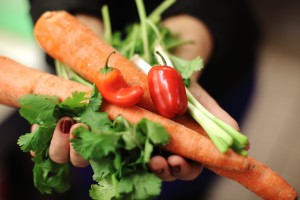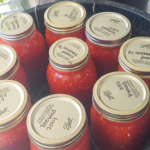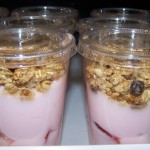Have you ever bought produce only to find it's too ripe, or not ripe enough? It can be challenging to choose perfect produce every time. We've put together five simple rules to guide your purchases this summer:
- Trust your sense of smell.
 The scent of some produce can help determine whether it's ripe. Fruit should smell fragrant, particularly melons, berries and stone fruits like plums, peaches and nectarines.
The scent of some produce can help determine whether it's ripe. Fruit should smell fragrant, particularly melons, berries and stone fruits like plums, peaches and nectarines. - Handle with care. Ripe fruits like plums should yield to gentle pressure. Does your fruit feel hard to the touch? It's probably not ready to eat just yet. On the other hand, vegetables like squash and eggplant should feel firm; you'll know they're ripe when they feel heavy for their size.
- Size it up. Despite common belief that bigger is better, smaller fruits and vegetables have more concentrated flavors and nutrients. Larger zucchini, for example, will be filled with more water. Opt for smaller varieties and stock up on more of them.
- Perfect isn't always perfect. Don't be afraid of “ugly” fruits and veggies! Bruised vegetables and fruits should be avoided, but blemishes and odd shapes are mere imperfections on what's otherwise a truly nutritious food. If you plan to shred your carrots or chop your cantaloupe, the shape of the produce shouldn't matter.
- Plan ahead. Think about when you hope to use your produce. If you want your peaches to last the week, choose firmer peaches and allow them to sit on your counter top or window sill to ripen.






